Muir and the Environment
- Land Acknowledgment
- Commitment to the Environment
- UC Natural Reserve
- Student Organizations
- Muir Environmental Fellows

In 2011 Muir College inaugurated a new tradition to honor the legacy of the college’s namesake, John Muir. Each year, the college names a Muir Environmental Fellow(s) from a selected group of individuals affiliated with UC San Diego (faculty, staff, or alumni) whose work has contributed significantly to the cause of sustainability and environmental preservation.
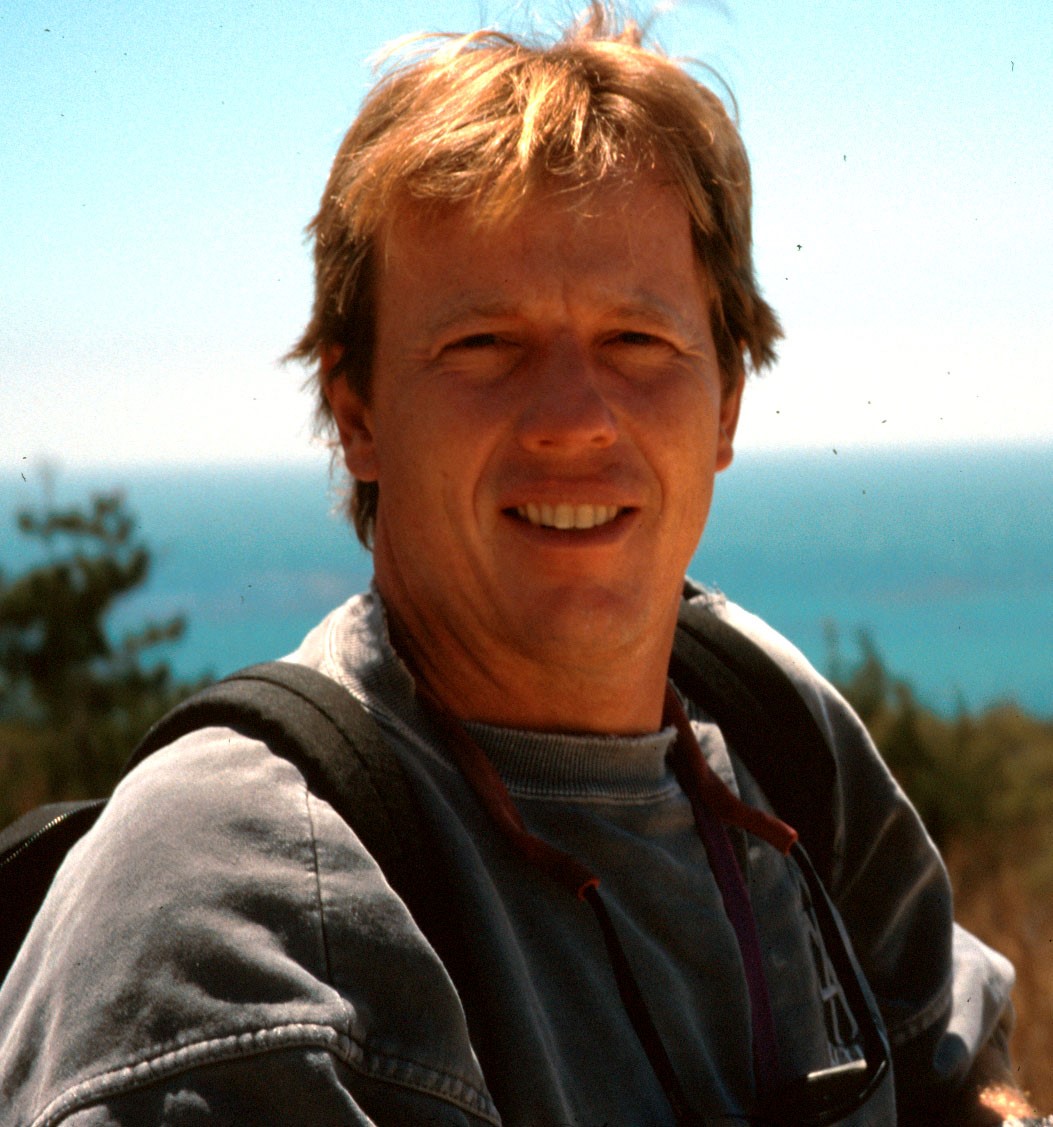 Don Croll is a Professor in Ecology and Evolutionary Biology, UC Santa Cruz, Co-founder of the conservation non-profit Island Conservation, founding partner and Science Director of the conservation for-profit Conservation Metrics, Inc., Faculty Director of the UCSC Natural Reserve System, and a National Geographic Fellow. He has conducted conservation research on island ecosystems and marine vertebrates for over 30 years, and published over 100 papers and articles on the conservation and ecology of marine species and island ecosystems. As a professor, he has been dedicated to developing the research programs, courses, and graduate training needed for direct conservation action. Early in his career he won the Audubon Conservation award for his conservation research in California fisheries bycatch leading to the closure of a coastal California gill-net fishery. In 2006, he led a unique coalition of academics, conservationists, politicians, and fishermen that resulted in the US Pacific Fishery Management Council adopting a ban on commercial fishing for krill in federal waters in recognition of its vital importance to marine food webs. He has trained over 600 undergraduates and 17 graduate and postdoctoral students in marine conservation, conservation biology, and field methods in conservation. Don received his B.S.in biology from UC Davis, M.S. from Moss Landing Marine Laboratories, and a Ph.D. from UC San Diego, Scripps Institution of Oceanography. He is currently the Robert Headley Presidential Chair for Integral Ecology and Environmental Justice.
Don Croll is a Professor in Ecology and Evolutionary Biology, UC Santa Cruz, Co-founder of the conservation non-profit Island Conservation, founding partner and Science Director of the conservation for-profit Conservation Metrics, Inc., Faculty Director of the UCSC Natural Reserve System, and a National Geographic Fellow. He has conducted conservation research on island ecosystems and marine vertebrates for over 30 years, and published over 100 papers and articles on the conservation and ecology of marine species and island ecosystems. As a professor, he has been dedicated to developing the research programs, courses, and graduate training needed for direct conservation action. Early in his career he won the Audubon Conservation award for his conservation research in California fisheries bycatch leading to the closure of a coastal California gill-net fishery. In 2006, he led a unique coalition of academics, conservationists, politicians, and fishermen that resulted in the US Pacific Fishery Management Council adopting a ban on commercial fishing for krill in federal waters in recognition of its vital importance to marine food webs. He has trained over 600 undergraduates and 17 graduate and postdoctoral students in marine conservation, conservation biology, and field methods in conservation. Don received his B.S.in biology from UC Davis, M.S. from Moss Landing Marine Laboratories, and a Ph.D. from UC San Diego, Scripps Institution of Oceanography. He is currently the Robert Headley Presidential Chair for Integral Ecology and Environmental Justice.
Dr. Kurle is an Associate Professor of Conservation Ecology at UCSD and her research investigates what animals eat and where they spend their time finding food. She does this to better understand the structure of the natural world and to figure out why animal populations are increasing or declining. Research in the Kurle lab is used by various agencies to inform better conservation and management strategies for species and their environments. For example, her work underscored that sea lions in Alaska eat mostly Walleye pollock, the number one human food fishery in the United States, and those data informed fisheries managers to account for sea lion predation when managing pollock to help ameliorate competition for food between humans and sea lions. She and her students work on multiple species including sea turtles, bears, California condors, seals and sea lions, reptiles, invasive rats, birds, fish, and, most recently, killer whales. Dr. Kurle also loves teaching Introduction to Ecology and Evolution and Marine Conservation Biology to undergraduates at UCSD, and she strives to create learning environments that hopefully foster a greater appreciation of nature and a willingness on the part of the students to preserve the environment.
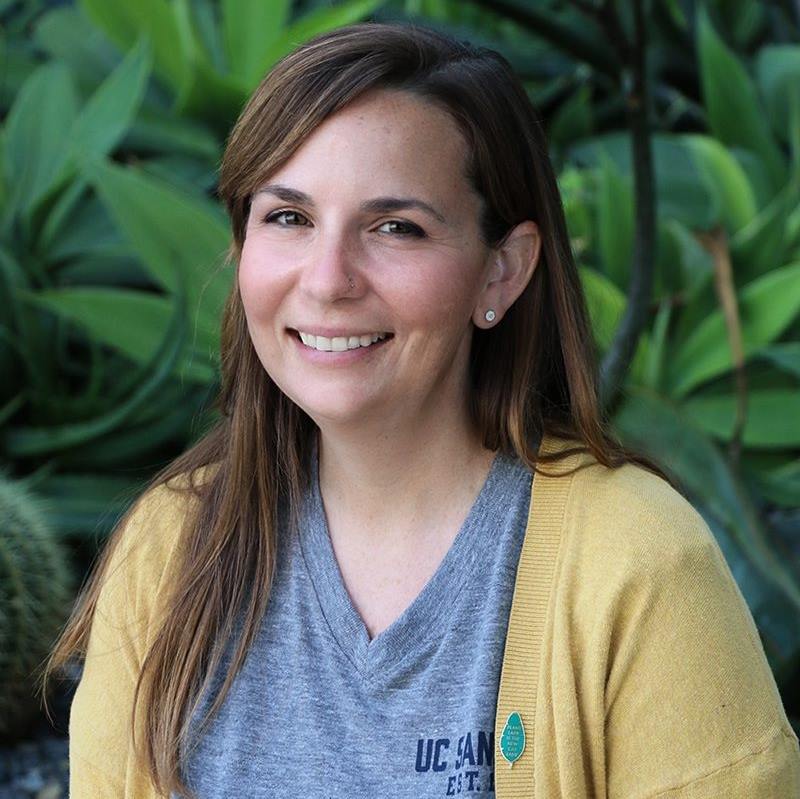 Outside of her full-time job as a safety coordinator at Scripps Institution of Oceanography (SIO), Allyson Long demonstrates a commitment to sustainability principles and practices. She is an active member of the university-wide Green Labs team, UC San Diego’s Zero Waste Task Force, the Inter-Sustainability Council, Staff Sustainability Network and SIO for Sustainability. She has promoted various initiatives that exhibit “sustainability at work” including increasing SIOs participation in the Green Labs and Green Office certification programs, volunteered SIO to be the first VC area to pilot the Bin Buddy program, implemented pre and post-consumer composting across the SIO campus, worked to get 7 new water refill stations installed at SIO, secured funding to install two much needed kitchen sinks in Nierenberg Hall to encourage the use of reusables, and is continuously helping to coordinate zero waste events. Allyson cares deeply about UC San Diego and consistently collaborates with other campus departments to advocate for change and help the University meet its sustainability goals.
Outside of her full-time job as a safety coordinator at Scripps Institution of Oceanography (SIO), Allyson Long demonstrates a commitment to sustainability principles and practices. She is an active member of the university-wide Green Labs team, UC San Diego’s Zero Waste Task Force, the Inter-Sustainability Council, Staff Sustainability Network and SIO for Sustainability. She has promoted various initiatives that exhibit “sustainability at work” including increasing SIOs participation in the Green Labs and Green Office certification programs, volunteered SIO to be the first VC area to pilot the Bin Buddy program, implemented pre and post-consumer composting across the SIO campus, worked to get 7 new water refill stations installed at SIO, secured funding to install two much needed kitchen sinks in Nierenberg Hall to encourage the use of reusables, and is continuously helping to coordinate zero waste events. Allyson cares deeply about UC San Diego and consistently collaborates with other campus departments to advocate for change and help the University meet its sustainability goals.
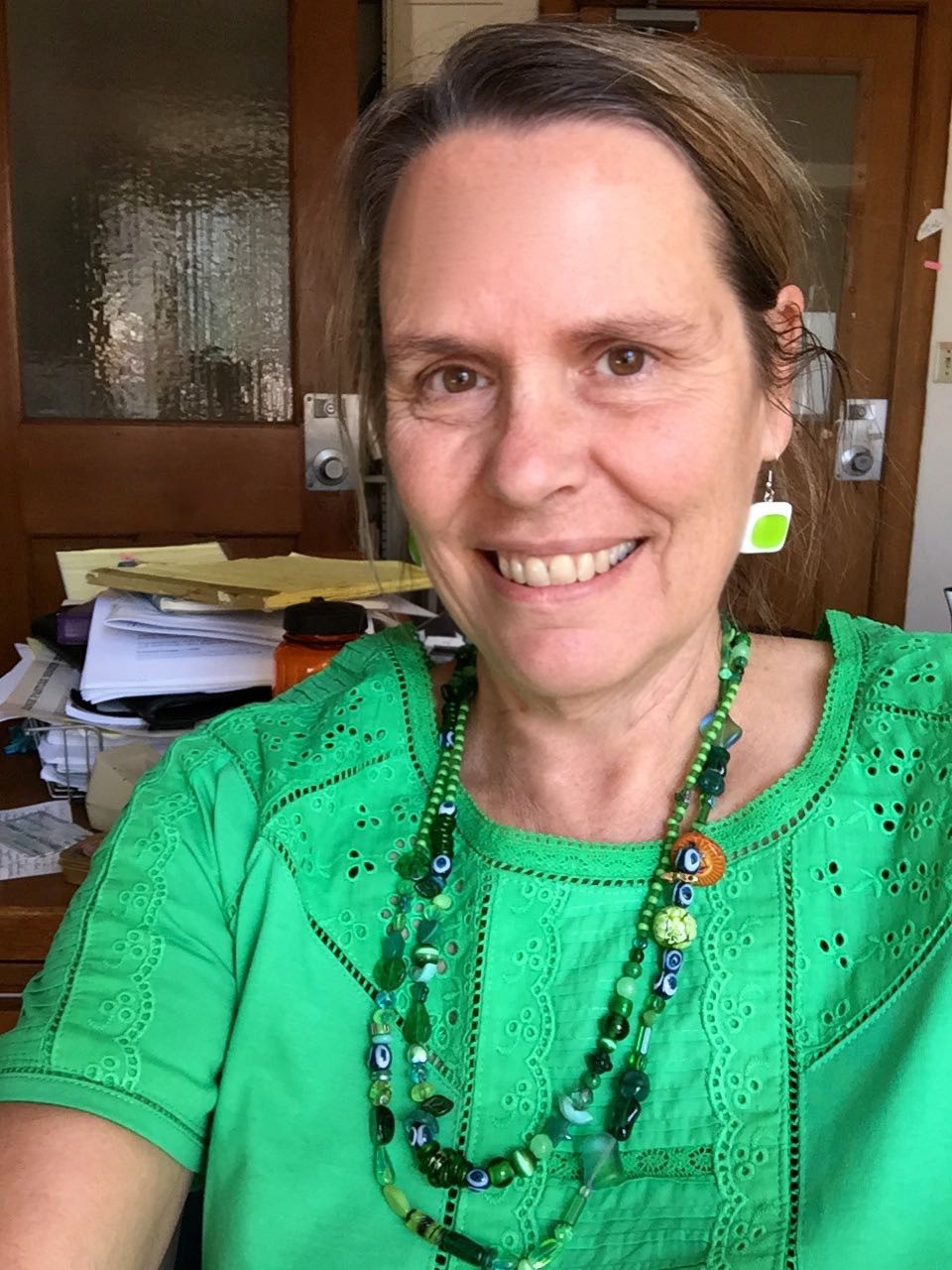 Lynn Huntsinger earned her BA degree in Chinese Studies in Modern History in 1979, making her one of UCSD’s first Chinese Studies graduates. At UCSD, she was a leader of the student led “Wilderness and Human Values” course, working with Muir's Founding Provost John Stewart. Class readings of John Muir, Aldo Leopold, and Edward Abbey were punctuated by numerous field trips to Utah, Mexico, and eastward in the San Diego region. She now holds an endowed chair as Professor of Rangeland Ecology and Management at the University of California, Berkeley. Her research focuses on the conservation and management of rangelands, particularly the interaction of social and ecological systems in working landscapes of the western United States. She has published numerous articles and book chapters on topicssuch as grazing ecology, pastoralism, and indigenous management, including work on the conservation history of the oak woodlands and forests of California and Spain. She is best known for applying concepts from the literature of international development to management of U.S. rangelands, and for promoting the benefits of the stewardship and conservation of private rangelands.
Lynn Huntsinger earned her BA degree in Chinese Studies in Modern History in 1979, making her one of UCSD’s first Chinese Studies graduates. At UCSD, she was a leader of the student led “Wilderness and Human Values” course, working with Muir's Founding Provost John Stewart. Class readings of John Muir, Aldo Leopold, and Edward Abbey were punctuated by numerous field trips to Utah, Mexico, and eastward in the San Diego region. She now holds an endowed chair as Professor of Rangeland Ecology and Management at the University of California, Berkeley. Her research focuses on the conservation and management of rangelands, particularly the interaction of social and ecological systems in working landscapes of the western United States. She has published numerous articles and book chapters on topicssuch as grazing ecology, pastoralism, and indigenous management, including work on the conservation history of the oak woodlands and forests of California and Spain. She is best known for applying concepts from the literature of international development to management of U.S. rangelands, and for promoting the benefits of the stewardship and conservation of private rangelands.
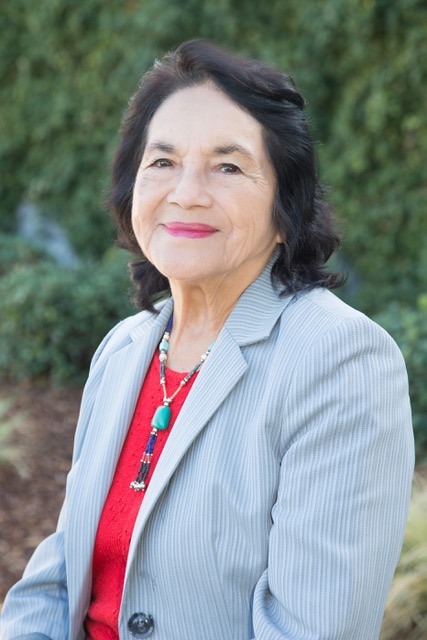 Ms. Dolores Huerta is a labor leader and community organizer. She has worked civil rights and social justice for
Ms. Dolores Huerta is a labor leader and community organizer. She has worked civil rights and social justice for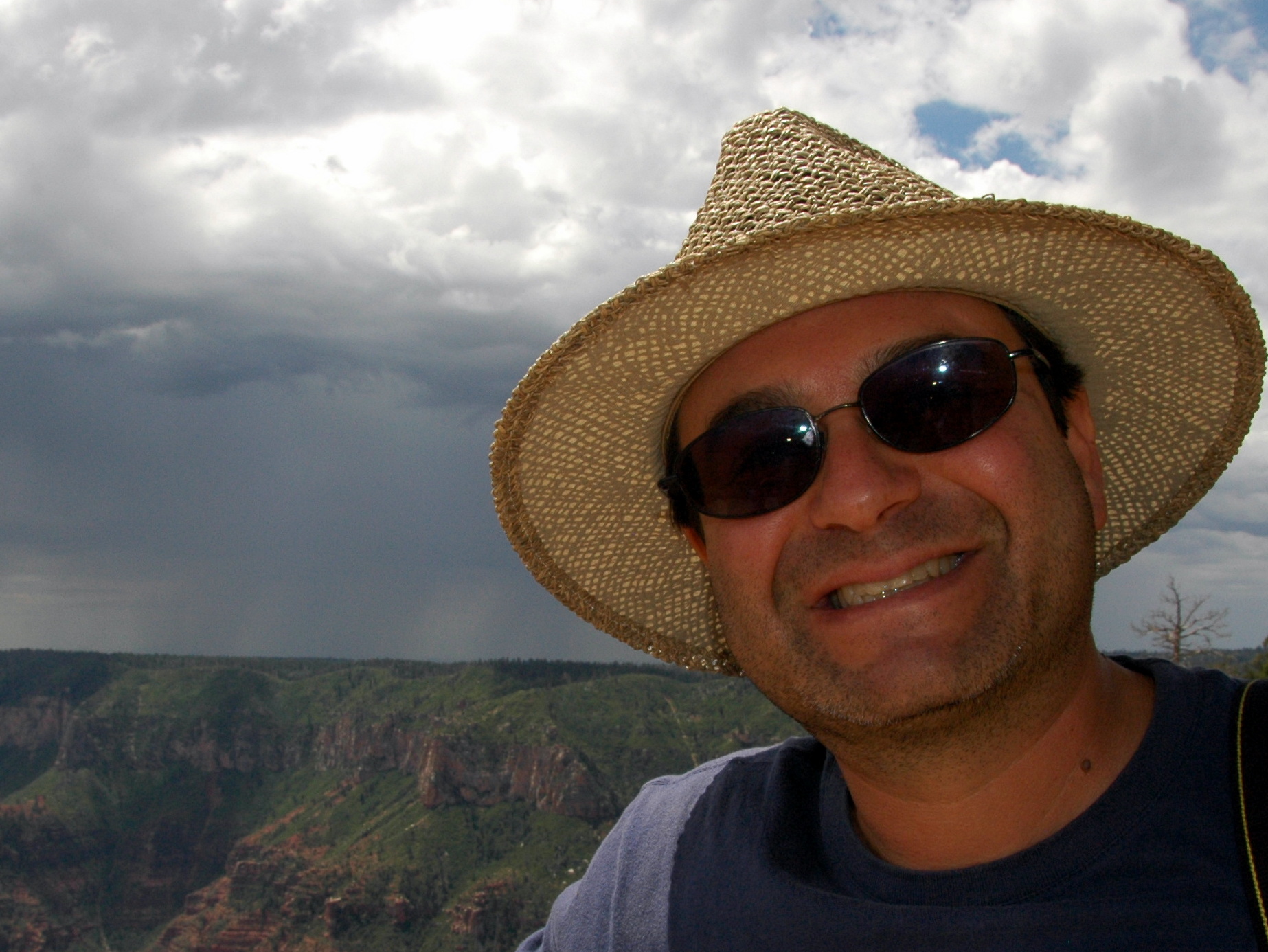
Dr. Gershunov’s research focuses on interrelated aspects of weather, climate and society. His professional interests include understanding the links between regional weather extremes and large-scale climate variability and change, long-range climate prediction, the atmospheric water cycle, precipitation and drought, heat waves, cold snaps, marine layer clouds, atmospheric rivers, Santa Ana winds, extreme weather and climate impacts on wildfire, energy, ecosystems, water resources and public health, climate influence on society and human influence on climate.
Dr. Gershunov is affiliated with various organizations focused on regionally relevant climate research with benefit to society ranging from education to resource management. He enjoys working with colleagues and friends across borders and disciplines.
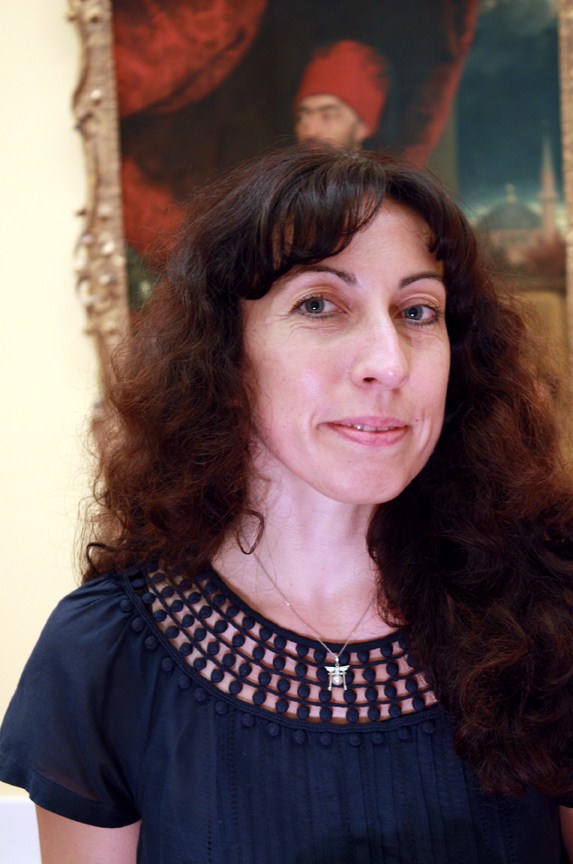 Dr. Tatiana Sizonenko is an art historian, curator, and educator. Sizonenko received a Ph.D. in Renaissance art history, with a specialization in Venice and the Mediterranean world, from the Visual Arts Department, UC San Diego. Her dissertation examines instances of artistic exchange in the context of diplomacy and politics in the Mediterranean. Sizonenko’s research and teaching has been informed by her wide-ranging curatorial practice. Currently, she serves as guest curator for the University Art Gallery at UCSD and the La Jolla Historical Society. Prior, she held positions as curatorial fellow at the Timken Museum of Art, curatorial fellow for the Dean of the Division of Arts and Humanities, curator of collections and special exhibitions at the Museum of Making Music in Carlsbad, and guest curator at the Barrington Center for the Arts at Gordon College, MA. Before coming to the U.S., she held the position of assistant curator in the Department of Medieval Art at the State Russian Museum in St. Petersburg, Russia. She has been the recipient of several fellowships from the University of California San Diego, the Timken Museum of Art, and National fellowship for Distinguished Scholarship in Art History in Russia. In both university and museum settings, Sizonenko has taught courses on western art from ancient to contemporary with a strong focus on the intended function of art objects in their respective historical contexts. Currently, she teaches Introduction to Renaissance Art and Baroque Art at CSULB, Pre-Twentieth Century Art at CSUSM, Art Appreciation at Grossmont College.
Dr. Tatiana Sizonenko is an art historian, curator, and educator. Sizonenko received a Ph.D. in Renaissance art history, with a specialization in Venice and the Mediterranean world, from the Visual Arts Department, UC San Diego. Her dissertation examines instances of artistic exchange in the context of diplomacy and politics in the Mediterranean. Sizonenko’s research and teaching has been informed by her wide-ranging curatorial practice. Currently, she serves as guest curator for the University Art Gallery at UCSD and the La Jolla Historical Society. Prior, she held positions as curatorial fellow at the Timken Museum of Art, curatorial fellow for the Dean of the Division of Arts and Humanities, curator of collections and special exhibitions at the Museum of Making Music in Carlsbad, and guest curator at the Barrington Center for the Arts at Gordon College, MA. Before coming to the U.S., she held the position of assistant curator in the Department of Medieval Art at the State Russian Museum in St. Petersburg, Russia. She has been the recipient of several fellowships from the University of California San Diego, the Timken Museum of Art, and National fellowship for Distinguished Scholarship in Art History in Russia. In both university and museum settings, Sizonenko has taught courses on western art from ancient to contemporary with a strong focus on the intended function of art objects in their respective historical contexts. Currently, she teaches Introduction to Renaissance Art and Baroque Art at CSULB, Pre-Twentieth Century Art at CSUSM, Art Appreciation at Grossmont College.
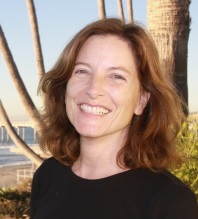 Dr. Theresa Sinicrope Talley is a Coastal Specialist with California Sea Grant based at UC San Diego. She uses science to advance the field of ecology, address coastal environmental issues, train tomorrow's leaders, and raise public awareness of our local natural ecosystems. She has worked extensively with San Diego’s coastal community, including fishermen, food system representatives, local and state agencies, educators and non-profits to identify and address needs through scientific research, and collaboratively craft solutions.
Dr. Theresa Sinicrope Talley is a Coastal Specialist with California Sea Grant based at UC San Diego. She uses science to advance the field of ecology, address coastal environmental issues, train tomorrow's leaders, and raise public awareness of our local natural ecosystems. She has worked extensively with San Diego’s coastal community, including fishermen, food system representatives, local and state agencies, educators and non-profits to identify and address needs through scientific research, and collaboratively craft solutions.
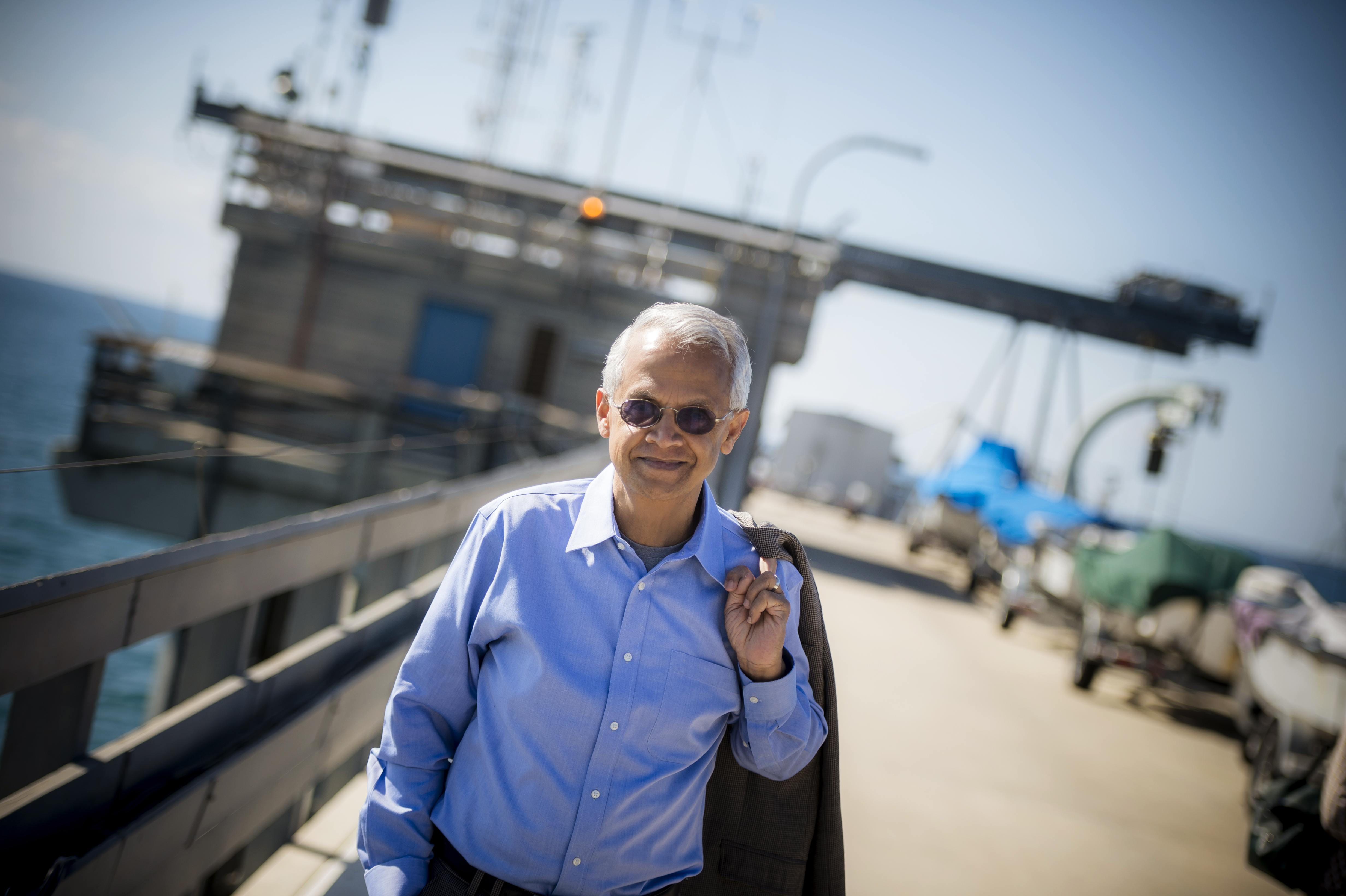 Dr. Veerabhadran Ramanathan is a Distinguished Professor of Atmospheric and Climate Sciences at the Scripps Institute of Oceanography, UC San Diego. He has been conducting original research in Climate and Atmospheric Science since the 1970s and discovered the greenhouse effect of Choloro-fluoro-carbons. He led the Indian-Ocean-experiment that discovered the widespread Atmospheric Brown Clouds and the large warming effect of black carbon. Dr. Ramanathan conducted fundamental research on the atmospheric greenhouse effects of CO2, water vapor, methane, ozone and hydro-fluoro-carbons, as well as on the feedback effects involving sea ice, tropical clouds, and storm tracks. He was honored as the 2013 Champion of Earth for Science and Innovation by the United Nations and named the 2014 Global Thinker by the US Foreign Policy. Dr. Veerabhadran Ramanathan received his B.E. in Engineering at Annamalai University, his M.Sc. in Engineering at the Indian Institute of Science, and his Ph.D. in Planetary Atmospheres at State University of New York at Stony Brook.
Dr. Veerabhadran Ramanathan is a Distinguished Professor of Atmospheric and Climate Sciences at the Scripps Institute of Oceanography, UC San Diego. He has been conducting original research in Climate and Atmospheric Science since the 1970s and discovered the greenhouse effect of Choloro-fluoro-carbons. He led the Indian-Ocean-experiment that discovered the widespread Atmospheric Brown Clouds and the large warming effect of black carbon. Dr. Ramanathan conducted fundamental research on the atmospheric greenhouse effects of CO2, water vapor, methane, ozone and hydro-fluoro-carbons, as well as on the feedback effects involving sea ice, tropical clouds, and storm tracks. He was honored as the 2013 Champion of Earth for Science and Innovation by the United Nations and named the 2014 Global Thinker by the US Foreign Policy. Dr. Veerabhadran Ramanathan received his B.E. in Engineering at Annamalai University, his M.Sc. in Engineering at the Indian Institute of Science, and his Ph.D. in Planetary Atmospheres at State University of New York at Stony Brook.
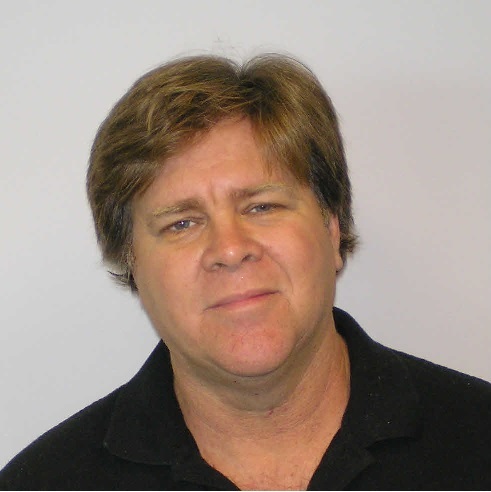 Dr. Robert “Skip” Pomeroy is an exemplary educator and mentor to students at UC San Diego and local high schools, Dr. Pomeroy advocates for environmental issues focusing on areas of renewable and reclaimed biofuels. In 2008, he brought together like-minded chemistry majors interested in sustainable fuel production to form the UCSD Biodiesel Student group. The group focused on the conversion of waste cooking oils from the dining halls at UC San Diego into vehicular-grade diesel fuel. In addition to his many contributions at UC San Diego, Dr. Pomeroy also advocates for environmental issues in the greater San Diego community. On most Saturdays, you will find him enriching the STEM experience of high school students in Chula Vista and engaging these students in biodiesel production. Dr. Pomeroy received his B.A. degree in Chemistry at UC San Diego with a specialization in Earth Sciences, an M.S. in Analytical Chemistry at Cal Poly Pomona, and a Ph.D. in Analytical Chemistry at the University of Arizona. After receiving his Ph.D., he went on to a post-doctoral fellowship at the Scripps Institute of Oceanography. He also had stints at Eastman Kodak, the US Naval Academy and Nova Southeastern University. While at Nova Southeastern, he served as the head of Research and Development for Southern Grouts and Mortars. Dr. Pomeroy returned to UC San Diego as an associate teaching professor in 2007.
Dr. Robert “Skip” Pomeroy is an exemplary educator and mentor to students at UC San Diego and local high schools, Dr. Pomeroy advocates for environmental issues focusing on areas of renewable and reclaimed biofuels. In 2008, he brought together like-minded chemistry majors interested in sustainable fuel production to form the UCSD Biodiesel Student group. The group focused on the conversion of waste cooking oils from the dining halls at UC San Diego into vehicular-grade diesel fuel. In addition to his many contributions at UC San Diego, Dr. Pomeroy also advocates for environmental issues in the greater San Diego community. On most Saturdays, you will find him enriching the STEM experience of high school students in Chula Vista and engaging these students in biodiesel production. Dr. Pomeroy received his B.A. degree in Chemistry at UC San Diego with a specialization in Earth Sciences, an M.S. in Analytical Chemistry at Cal Poly Pomona, and a Ph.D. in Analytical Chemistry at the University of Arizona. After receiving his Ph.D., he went on to a post-doctoral fellowship at the Scripps Institute of Oceanography. He also had stints at Eastman Kodak, the US Naval Academy and Nova Southeastern University. While at Nova Southeastern, he served as the head of Research and Development for Southern Grouts and Mortars. Dr. Pomeroy returned to UC San Diego as an associate teaching professor in 2007.
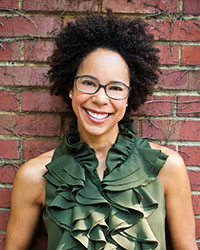 Dr. Ayana Elizabeth Johnson, who received her Ph.D. in Marine Biology from Scripps Institution of Oceanography, is an award-winning marine biologist and executive director of the Waitt Institute, whose personal mission is to collect, create, and amplify the best ideas in ocean conservation. The institute focuses on empowering communities to restore their oceans by fostering deep collaborations with the communities and local governments to envision, design, and implement comprehensive ocean zoning and sustainable management solutions.
Dr. Ayana Elizabeth Johnson, who received her Ph.D. in Marine Biology from Scripps Institution of Oceanography, is an award-winning marine biologist and executive director of the Waitt Institute, whose personal mission is to collect, create, and amplify the best ideas in ocean conservation. The institute focuses on empowering communities to restore their oceans by fostering deep collaborations with the communities and local governments to envision, design, and implement comprehensive ocean zoning and sustainable management solutions.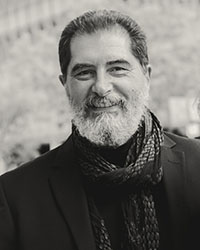 Professor Pasquale Verdicchio, of UCSD’s Department of Literature, has for the last decade merged his interests in his teaching of graduate and undergraduate students, focusing on ecocritical approaches to culture and the commons and often asking participants to step outside the comfort zones of their disciplines. In conjunction with graduate students, he convened the Common Knowledge Study Group under the auspices of the UCSD Center for the Humanities, which has expanded to include graduate students and faculty from a variety of backgrounds and, during its three years, has sponsored two symposia and hosted regular study meetings.
Professor Pasquale Verdicchio, of UCSD’s Department of Literature, has for the last decade merged his interests in his teaching of graduate and undergraduate students, focusing on ecocritical approaches to culture and the commons and often asking participants to step outside the comfort zones of their disciplines. In conjunction with graduate students, he convened the Common Knowledge Study Group under the auspices of the UCSD Center for the Humanities, which has expanded to include graduate students and faculty from a variety of backgrounds and, during its three years, has sponsored two symposia and hosted regular study meetings.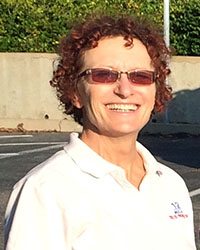
Isabelle S. Kay has worked at UCSD’s Natural Reserve System since 1989, when her dream of becoming its manager became a reality and she undertook to make use of the reserves for the benefit of the public -- such as watershed protection, marine protected area expansion, wetlands restoration, and endangered species management. Through UCSD’s Environmental Systems, and Master of Advanced Studies in Marine Biodiversity and Conservation programs, Isabelle has engaged undergraduate and graduate students in meaningful projects that help inform management of the reserves’ natural areas; many have gone on to positions in academia, private consultation, and public service directed at the study and protection of Earth’s natural environment.
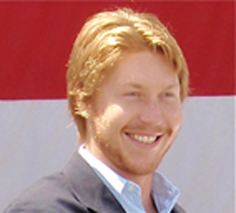
Kristian Anders Gustavson graduated from UCSD in 2006 with a BA in Political Science, then in 2011 completed a Masters of Advanced Studies in Marine and Biodiversity Conservation from Scripps Institution of Oceanography (SIO). He has been a tireless advocate of clean water and water preservation. In 2008, he founded the non-profit organization “Below the Surface” (BTS), dedicated to exploring the condition of the world’s watersheds. “The Riverview Project” is Below the Surface’s core public outreach and educational program. Inspired by Google’s Streetview mapping technology, Riverview intends to create an internet platform for people to visualize, interact, and explore rivers throughout the world. Mr. Gustavson has also been very active in the development and promotion of algal biodiesel. His project, “One Barrel for Baja: Driving Algal Biofuel from Start to Finish,” worked with various UC San Diego/SIO students and collaborators from the San Diego Center for Algae Biotechnology to accelerate algae biotechnology development through demonstrating the performance capabilities of algal biodiesel in the off-road racing circuit.
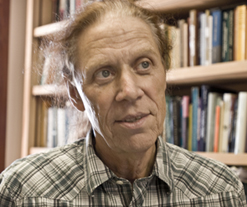
UCSD Professor Emeritus Jeremy Jackson is a Senior Scientist Emeritus at the Smithsonian Institution. He was Director of SIO’s Center for Marine Biodiversity and Conservation, as well as the William E. and Mary B. Ritter Professor of Oceanography. Before coming to Scripps, he taught as a Professor of Ecology at Johns Hopkins University and was a Senior Scientist at the Smithsonian Tropical Research Institute in the Republic of Panama. He has served on committees and boards of the World Wildlife Fund US, the National Research Council, the National Center for Ecological Analysis and Synthesis, and the Science Commission of the Smithsonian Institution. Professor Jackson has authored or edited more than 150 scientific publications and seven books, including research on the long-term impacts of human activities on the oceans and the ecological and evolutionary consequences of the formation of the Isthmus of Panama. He also ran an intensive 10-week summer boot camp for students at the Center for Marine Biodiversity and Conservation. Professor Jackson has worked extensively on the ecology of coral reef communities and the tempo and mode of speciation in the sea. This research has had considerable impact, as has his powerful TED talk, “How we wrecked the oceans,” which has been viewed half a million times.
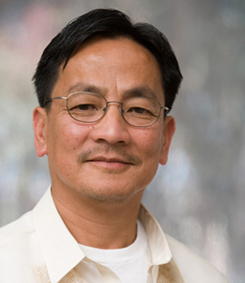
Alonso N. Noble, Assistant Superintendent of Facilities Management at UCSD, has been in charge of campus waste management since 2003. In this role, he implemented a single-stream recycling program resulting in reduced costs and more than twice the percentage of waste diversion over the last ten years. He co-authored UCSD’s Solid Waste Diversion Plan, developed a guide on “How to Host a Zero-Waste Event on Campus,” and has been diligent in educating the UCSD community in the importance of recycling and conservation. In his leadership position, Mr. Noble has worked with Housing, Dining, and Hospitality to implement sustainable practices, including composting and improved irrigation, resulting in a 30% reduction in water use in some areas. His management of the Horticultural Pest Control program emphasizes Integrated Pest Management principles, resulting in less use of toxic methods. Active in professional organizations, including the California Higher Education Sustainability Conference and the California Collegiate Recycling Council, Mr. Noble has represented UCSD as a speaker, moderator, and board member.
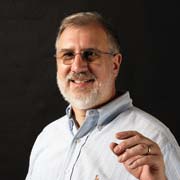 Richard Carson, Professor of Economics at UC San Diego, is one of the world’s foremost environmental economists. Carson’s research has fundamentally altered how economists and policy-makers think about the economic value of environmental quality with results that go beyond the research community to have a major impact in the real world. Among his most important empirical studies is his assessment of the economic damage caused by the Exxon Valdez oil spill in 1989, which devastated the shoreline of Alaska’s Prince William Sound. His efforts led to a record damage settlement for the government that funded restoration and conservation efforts that continue today. Carson is active as an advisor to government agencies on the local, state and international levels, including the governments of the U.S., Australia, Canada, Malaysia, and the United Kingdom, and as a consultant to international organizations such as the World Health Organization, the Work Bank, and the U.N. Development Program. At UCSD, Carson has brought his expertise to UCSD as a former Chair of the Chancellor’s Advisory Committee on Sustainability and as a member of the Environmental Studies Steering Committee.
Richard Carson, Professor of Economics at UC San Diego, is one of the world’s foremost environmental economists. Carson’s research has fundamentally altered how economists and policy-makers think about the economic value of environmental quality with results that go beyond the research community to have a major impact in the real world. Among his most important empirical studies is his assessment of the economic damage caused by the Exxon Valdez oil spill in 1989, which devastated the shoreline of Alaska’s Prince William Sound. His efforts led to a record damage settlement for the government that funded restoration and conservation efforts that continue today. Carson is active as an advisor to government agencies on the local, state and international levels, including the governments of the U.S., Australia, Canada, Malaysia, and the United Kingdom, and as a consultant to international organizations such as the World Health Organization, the Work Bank, and the U.N. Development Program. At UCSD, Carson has brought his expertise to UCSD as a former Chair of the Chancellor’s Advisory Committee on Sustainability and as a member of the Environmental Studies Steering Committee.
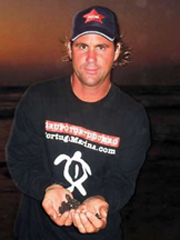 Serge Dedina is an alumnus of UC San Diego who for thirty years has been a champion of wilderness conservation in the tradition of John Muir. Muir College’s signature class Wilderness and Human Values which Dedina took with founding provost John Stewart, was a formative experience which strongly influenced his choice of future career. Currently co-founder and executive director of Wildcoast, his advocacy and entrepreneurial leadership has saved hundreds of thousands of acres of North and South American coastal wildlands and wildlife. Formerly, as founding director of The Nature Conservancy’s Baja California and Sea of Cortez Program, he was instrumental in the development of two national parks along the Sea of Cortez coastline and a research and educational center in Magdalena Bay. He also helped broker a deal to protect 140,000 acres at Laguna San Ignacio, a UNESCO World Heritage site. For these and other achievements, he has received awards such as the San Diego Zoological Society’s Conservation Medal and Sunset Magazine’s “Coastal Hero” award. Dedina is also a prolific author, communicating about the importance of conservation through books such as Wild Sea: Eco-Wars and Surf Stories from the Coast of the Californias and Saving the Gray Whale and a long list of articles on the environment and surfing.
Serge Dedina is an alumnus of UC San Diego who for thirty years has been a champion of wilderness conservation in the tradition of John Muir. Muir College’s signature class Wilderness and Human Values which Dedina took with founding provost John Stewart, was a formative experience which strongly influenced his choice of future career. Currently co-founder and executive director of Wildcoast, his advocacy and entrepreneurial leadership has saved hundreds of thousands of acres of North and South American coastal wildlands and wildlife. Formerly, as founding director of The Nature Conservancy’s Baja California and Sea of Cortez Program, he was instrumental in the development of two national parks along the Sea of Cortez coastline and a research and educational center in Magdalena Bay. He also helped broker a deal to protect 140,000 acres at Laguna San Ignacio, a UNESCO World Heritage site. For these and other achievements, he has received awards such as the San Diego Zoological Society’s Conservation Medal and Sunset Magazine’s “Coastal Hero” award. Dedina is also a prolific author, communicating about the importance of conservation through books such as Wild Sea: Eco-Wars and Surf Stories from the Coast of the Californias and Saving the Gray Whale and a long list of articles on the environment and surfing.
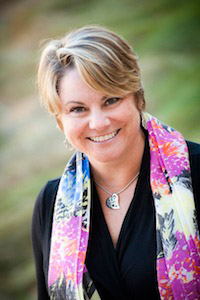 There is little in the way of sustainability at UC San Diego in which Krista Mays has not had a hand. As early as 1994, she served as the campus’s first recycling coordinator and was instrumental in establishing the Chancellor’s Advisory Committee on Sustainability. Solar lights at campus bus stops -- hydration stations to discourage the use of plastic water bottles -- Mays’ influence is everywhere, even on the sidewalks that criss-cross campus, for which she applied for and received a grant to replace the wood that separates the concrete slabs with the more environmentally friendly, recycled product Trex. As Sustainability Manager for Housing and Dining, she has promoted the use of cage-free eggs and Fair Trade coffee and other products, and works with student organizations such as HDH’s own Econauts and BAAN, the Biodiesel Action and Awareness Network, that recycles cooking oil from the dining halls to make alternative fuels.
There is little in the way of sustainability at UC San Diego in which Krista Mays has not had a hand. As early as 1994, she served as the campus’s first recycling coordinator and was instrumental in establishing the Chancellor’s Advisory Committee on Sustainability. Solar lights at campus bus stops -- hydration stations to discourage the use of plastic water bottles -- Mays’ influence is everywhere, even on the sidewalks that criss-cross campus, for which she applied for and received a grant to replace the wood that separates the concrete slabs with the more environmentally friendly, recycled product Trex. As Sustainability Manager for Housing and Dining, she has promoted the use of cage-free eggs and Fair Trade coffee and other products, and works with student organizations such as HDH’s own Econauts and BAAN, the Biodiesel Action and Awareness Network, that recycles cooking oil from the dining halls to make alternative fuels.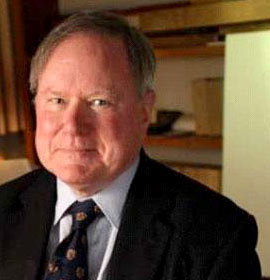 Charles F. Kennel, Professor Emeritus and former Vice Chancellor for Marine Sciences, Scripps Institute of Oceanography (SIO), is a strong believer in the promise of a sustainable future. UC San Diego’s progress towards becoming a national and international leader in environmental research, education, and public outreach owes much to his efforts at the early stages of this process. As Founding Director of UCSD’s Environment and Sustainability Initiative (ESI) (since renamed the Sustainability Solutions Institute), he led the first major interdisciplinary initiative to connect researchers, educators, and managers across the campus with each other and with the community to develop practical solutions to local, national, and global environmental problems. At SIO, Kennel supported the creation of the Center for Marine Biodiversity and Conservation , a center of interdisciplinary cooperation in research and educationwhich seeks technically advanced strategies to prevent and reverse biodiversity collapse. His long and notable research and teaching career involving global environmental science, science policy, astrophysics, space plasma physics, and earth observations, has been recognized with many awards and honors, among them a Guggenheim Fellowship, an Alfred P. Sloan Foundation Fellowship, and NASA’s Distinguished Public Service Medal.
Charles F. Kennel, Professor Emeritus and former Vice Chancellor for Marine Sciences, Scripps Institute of Oceanography (SIO), is a strong believer in the promise of a sustainable future. UC San Diego’s progress towards becoming a national and international leader in environmental research, education, and public outreach owes much to his efforts at the early stages of this process. As Founding Director of UCSD’s Environment and Sustainability Initiative (ESI) (since renamed the Sustainability Solutions Institute), he led the first major interdisciplinary initiative to connect researchers, educators, and managers across the campus with each other and with the community to develop practical solutions to local, national, and global environmental problems. At SIO, Kennel supported the creation of the Center for Marine Biodiversity and Conservation , a center of interdisciplinary cooperation in research and educationwhich seeks technically advanced strategies to prevent and reverse biodiversity collapse. His long and notable research and teaching career involving global environmental science, science policy, astrophysics, space plasma physics, and earth observations, has been recognized with many awards and honors, among them a Guggenheim Fellowship, an Alfred P. Sloan Foundation Fellowship, and NASA’s Distinguished Public Service Medal.
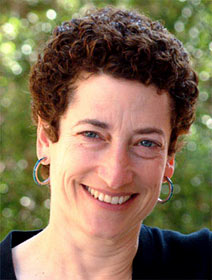 Naomi Oreskes, Professor of History and Science Studies at UC San Diego, has been a fighter for many years on the frontlines of the scientific debate over climate change. In 2011, she was named Climate Change Communicator of the Year in recognition of her award-winning book Merchants of Doubt, How a Handful of Scientists Obscured the Truth on Issues from Tobacco to Global Warming (co-authored with Erik M. Conway). Her publications on this topic have been widely cited, not only in the scientific literature, but in popular vehicles such as Al Gore’s Academy Award winning film, An Inconvenient Truth. She has testified about distortions of climate change research before the U.S. Congress and written powerful op-eds for publications such as The Washington Post, The Los Angeles Times, The Times of London, Nature, and Science. She has also worked hard to bring the issue of climate change to UCSD students. As Provost of Sixth College, she secured a $150,000 Global Climate Change Education grant from NASA to develop a freshman course sequence titled, "Climate, Technology, and Culture.”
Naomi Oreskes, Professor of History and Science Studies at UC San Diego, has been a fighter for many years on the frontlines of the scientific debate over climate change. In 2011, she was named Climate Change Communicator of the Year in recognition of her award-winning book Merchants of Doubt, How a Handful of Scientists Obscured the Truth on Issues from Tobacco to Global Warming (co-authored with Erik M. Conway). Her publications on this topic have been widely cited, not only in the scientific literature, but in popular vehicles such as Al Gore’s Academy Award winning film, An Inconvenient Truth. She has testified about distortions of climate change research before the U.S. Congress and written powerful op-eds for publications such as The Washington Post, The Los Angeles Times, The Times of London, Nature, and Science. She has also worked hard to bring the issue of climate change to UCSD students. As Provost of Sixth College, she secured a $150,000 Global Climate Change Education grant from NASA to develop a freshman course sequence titled, "Climate, Technology, and Culture.”
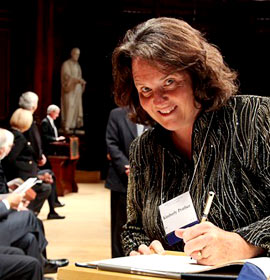 Kimberly Prather, Distinguished Chair in Atmospheric Chemistry at UC San Diego, is an internationally recognized scientist who takes her innovative research on aerosols and their impact on the environment outside the lab to school children in San Diego and to the community more broadly. Affiliated with both the Department of Chemistry and Biochemistry and SIO’s Center for Atmospheric Sciences, Prather is a founder and Director of the Center for Aerosol Impacts on Climate and Environment (CAICE). Through standing partnerships that she has established with local schools such as Castle Park High School in Chula Vista and Paul Ecke Elementary School in Encinitas, she and her research group bring their instruments to K-12 classrooms to educate students about pollution and climate change and to encourage them to consider careers in science. No less committed to education at UCSD, Prather is an excellent teacher who was nominated by her students in 2009 for the UCSD Faculty Sustainability Award in recognition of her teaching which encourages students to apply the principles of air pollution, climate, and health to real world experience.
Kimberly Prather, Distinguished Chair in Atmospheric Chemistry at UC San Diego, is an internationally recognized scientist who takes her innovative research on aerosols and their impact on the environment outside the lab to school children in San Diego and to the community more broadly. Affiliated with both the Department of Chemistry and Biochemistry and SIO’s Center for Atmospheric Sciences, Prather is a founder and Director of the Center for Aerosol Impacts on Climate and Environment (CAICE). Through standing partnerships that she has established with local schools such as Castle Park High School in Chula Vista and Paul Ecke Elementary School in Encinitas, she and her research group bring their instruments to K-12 classrooms to educate students about pollution and climate change and to encourage them to consider careers in science. No less committed to education at UCSD, Prather is an excellent teacher who was nominated by her students in 2009 for the UCSD Faculty Sustainability Award in recognition of her teaching which encourages students to apply the principles of air pollution, climate, and health to real world experience.
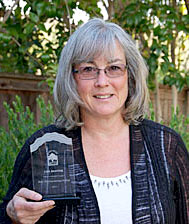 For many years, Lisa Shaffer has been a principal moving force in sustainability efforts at UC San Diego and in San Diego at large. Among a long list of awards and honors, she has been presented with the UCSD Sustainability Award; the City of San Diego Climate Champion Award; and NASA’s Exceptional Service and, Special Service medals. She has served as a board member of the Kids-vs.-Global-Warming and iMatter March; as a member of the Board of Directors for the California Center for Sustainable Energy; and for years, as the Executive Director of the Environment and Sustainability Initiative at UCSD, forerunner of the Sustainability Solutions Institute. At the Rady School of Management, Shafer teaches courses such as Corporate Ethics and Social Responsibility and serves as a resource for sustainability and green job-related outreach. She also teaches a graduate seminar at IRPS on Corporate Strategy and the Environment.
For many years, Lisa Shaffer has been a principal moving force in sustainability efforts at UC San Diego and in San Diego at large. Among a long list of awards and honors, she has been presented with the UCSD Sustainability Award; the City of San Diego Climate Champion Award; and NASA’s Exceptional Service and, Special Service medals. She has served as a board member of the Kids-vs.-Global-Warming and iMatter March; as a member of the Board of Directors for the California Center for Sustainable Energy; and for years, as the Executive Director of the Environment and Sustainability Initiative at UCSD, forerunner of the Sustainability Solutions Institute. At the Rady School of Management, Shafer teaches courses such as Corporate Ethics and Social Responsibility and serves as a resource for sustainability and green job-related outreach. She also teaches a graduate seminar at IRPS on Corporate Strategy and the Environment.
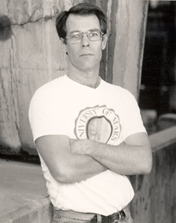 Kim Stanley Robinson’s distinguished career demonstrates how the creativity of science fiction writing can be enlisted to raise awareness about environmental issues and stimulate new ways of thinking about the environmental problems of the future. His novels have won eleven major awards including two Hugo Awards for Best Novel with Green Mars and Blue Mars; the Nebula Award for Best Novel with Red Mars; the Nebula Award for Best Novella with The Blind Geometer ; and six Locus Awards for various works. Virtually all Robinson's novels have an environmental component, and sustainability is one of his primary themes, along with global climate instability and the ways in which technology intersects with the natural world. He received his B.A. from UCSD and John Muir College in 1974 and his Ph.D. from UCSD’s Department of Literature in 1982. As an alumnus, he is generous with his time, returning often to campus to talk about the environment with students, including students in Muir’s Wilderness and Human Values class, and brought the Clarion Science Fiction and Fantasy Writing Workshop to UCSD.
Kim Stanley Robinson’s distinguished career demonstrates how the creativity of science fiction writing can be enlisted to raise awareness about environmental issues and stimulate new ways of thinking about the environmental problems of the future. His novels have won eleven major awards including two Hugo Awards for Best Novel with Green Mars and Blue Mars; the Nebula Award for Best Novel with Red Mars; the Nebula Award for Best Novella with The Blind Geometer ; and six Locus Awards for various works. Virtually all Robinson's novels have an environmental component, and sustainability is one of his primary themes, along with global climate instability and the ways in which technology intersects with the natural world. He received his B.A. from UCSD and John Muir College in 1974 and his Ph.D. from UCSD’s Department of Literature in 1982. As an alumnus, he is generous with his time, returning often to campus to talk about the environment with students, including students in Muir’s Wilderness and Human Values class, and brought the Clarion Science Fiction and Fantasy Writing Workshop to UCSD.
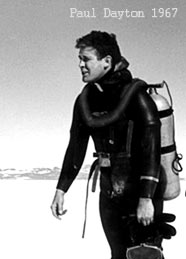 Paul Dayton is an internationally recognized ocean scientist who has dedicated himself to the cause of environmental conservation and education throughout his 35-year career at the Scripps Institution of Oceanography. He has researched coastal habitats in California, Antarctica, and elsewhere to better understand naturally functioning marine ecosystems and documented the environmental impacts of overfishing and natural phenomena such as El Niño. He is the only person to win both the George Mercer Award and the WS Cooper Award from the Ecological Society of America, and in 2006 was the first recipient of the Ramon Margalef Prize in Ecology and Environmental Sciences, awarded by a jury of scientists representing Catalonia, the European Union, and the international ecology community. Dayton has been director of The Ocean Conservancy and the National Research Council Panel on Marine Protected Areas, and is a frequent contributor to Science magazine.
Paul Dayton is an internationally recognized ocean scientist who has dedicated himself to the cause of environmental conservation and education throughout his 35-year career at the Scripps Institution of Oceanography. He has researched coastal habitats in California, Antarctica, and elsewhere to better understand naturally functioning marine ecosystems and documented the environmental impacts of overfishing and natural phenomena such as El Niño. He is the only person to win both the George Mercer Award and the WS Cooper Award from the Ecological Society of America, and in 2006 was the first recipient of the Ramon Margalef Prize in Ecology and Environmental Sciences, awarded by a jury of scientists representing Catalonia, the European Union, and the international ecology community. Dayton has been director of The Ocean Conservancy and the National Research Council Panel on Marine Protected Areas, and is a frequent contributor to Science magazine.